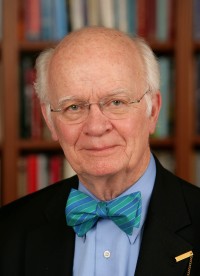H is for holy: A theological dictionary
No! blurted the expert on Japanese Buddhism. He was a member of a group of interreligious and interdisciplinary thinkers charged with coming up with a consensus statement. His no was prompted by a proposal from the Vati can’s representative, who wanted the group’s discussion of human dignity and human rights to include at least some words about God. Why the Buddhist no? The scholar explained that while Bud dhists are religious, they do not believe in God.
So the well-meaning questioner tried again: “Well, then, can we agree that we agree on ‘the Sacred’?” The Buddhist was even more emphatic: “We have sacred books and shrines and practices, but we do not have ‘the Sacred.’”
Ever since I heard the exchange I’ve thought about the functions of “the Sacred” and wondered whether it would be better to invoke the concept of “the Holy.” The two terms can seem synonymous, but Jewish and Christian theology and usage suggest that there are differences.
Holy is more easily applied to God as Person (to use the ambiguous creedal term that Christians mumble) than is sacred. “Sacred, Sacred, Sacred” sounds different from the “Holy, Holy, Holy” that Christians sing. Christians sometimes name God as “the Holy,” or use the word adjectivally, as in the “Holy One,” “Holy Spirit” and “Holy Trinity.”
Why make anything of these nuances? Because rethinking and employing afresh this old term in a profane world might help rescue believers from folksy ways of addressing God. Holy clearly refers to some sort of intrusion into our mucky world on the part of a separated or transcendent reality—an intrusion which can be both devastating and ennobling.
In Christian history, renewals of theology, devotion and action begin in, are sustained by and climax in witness to the holiness of God and, analogically, to a holy people and a holy church. Paul Tillich noted that in popular language holiness is “identified with moral perfection.” But Tillich and Rudolf Otto helped us see that the holy and holiness are grounded not in moral perfection but in the concept of “the ‘separated,’ the ‘transcending,’ the ‘fascinating and terrifying,’ the ‘entirely other.’”
The term holy is also relevant to the question of ordination. For years I have listened to arguments about who gets ordained—Do women? Do gays?—and have watched partisans throw fits over the issue. In the heat of their debates, I sometimes ask people what ordination means on the basis of the Bible or ecumenical theology. Most change the subject and get back to the “who” question.
As Thomas B. Dozeman points out in Holiness and Ministry: A Biblical Theo logy of Ordination (Oxford Uni ver sity Press), when it comes to ordination holiness does not mean being morally perfect but means being separate. Dozeman’s index lists holiness as a “dynamic force” and a “ritual resource.”
“Holiness cannot be equated with God,” writes Dozeman. “Rather, holiness acts as an agency of the divine will.” The divine command “You shall be holy, for I am holy” (Lev. 11:45) illustrates the distinction between God and holiness. In both testaments, “the command is not for Christians to become God but to be holy. Holiness and God are inseparable in the Bible, but they are not the same.”
Dozeman suggests that the sanctuary is the “office” for the ordained. Like other professions, the ordained do not confine their jobs to the office. “But the home office for the world mission of ethics and justice is the sanctuary.” That may sound clerical, as if holy in the sense of separated could not apply to laypeople. But the laity are also “separated” by baptism or dedication to a life of ministry.
The term holy may also sound snobbish, breeding holier-than-thou attitudes. But in Christian witness, when the holy condescends and is humbled in Jesus Christ (Phil. 2:5-11), the mark of separation and then of engagement for all Christians in their various callings is modeled on Jesus, of whom Günther Bornkamm observed: “Jesus belongs to this world. Yet in the midst of it he is of unmistakable otherness.” In other words: holy.






